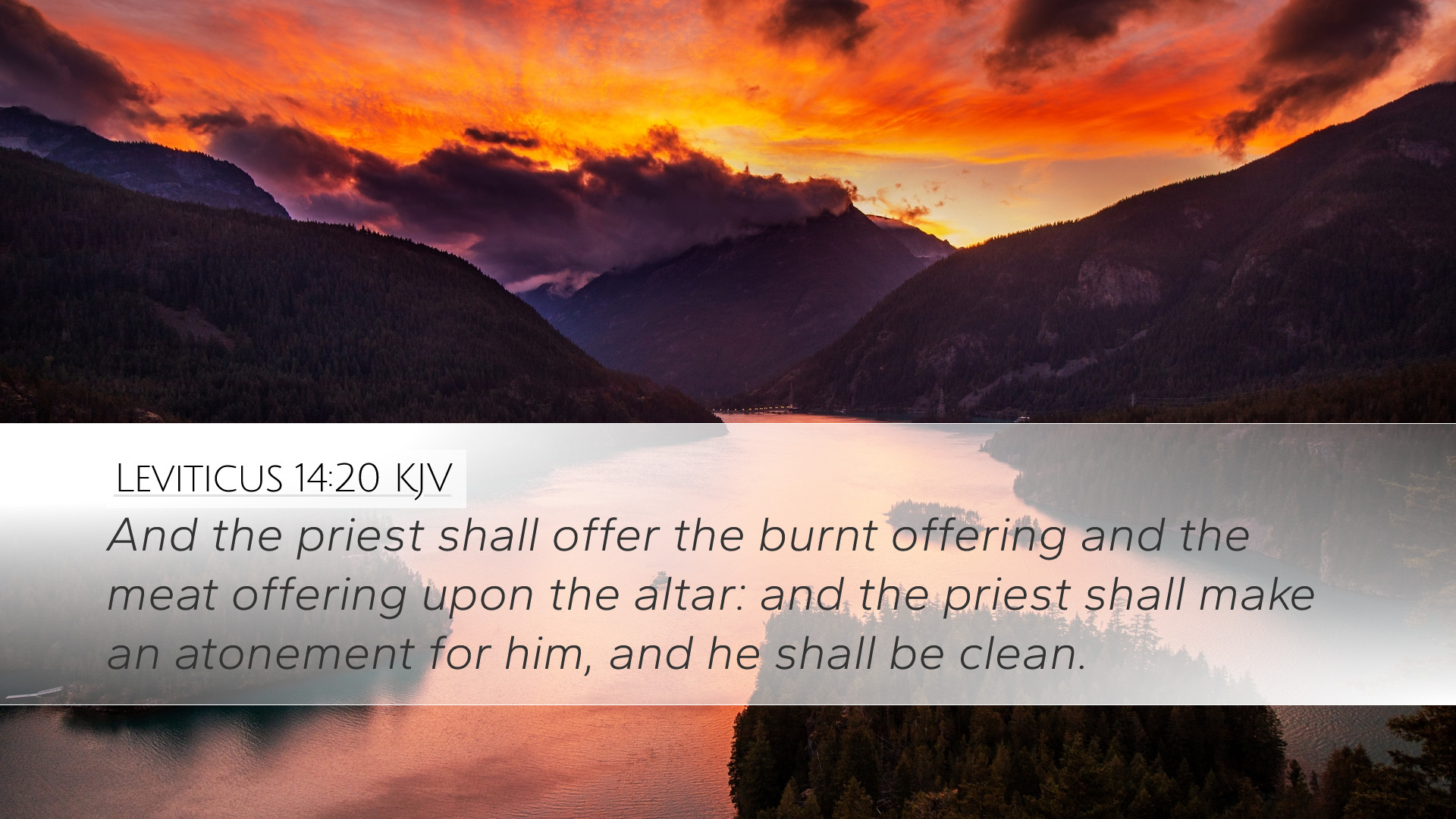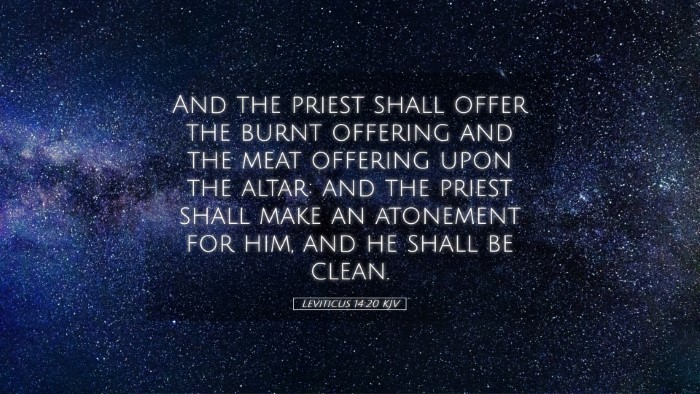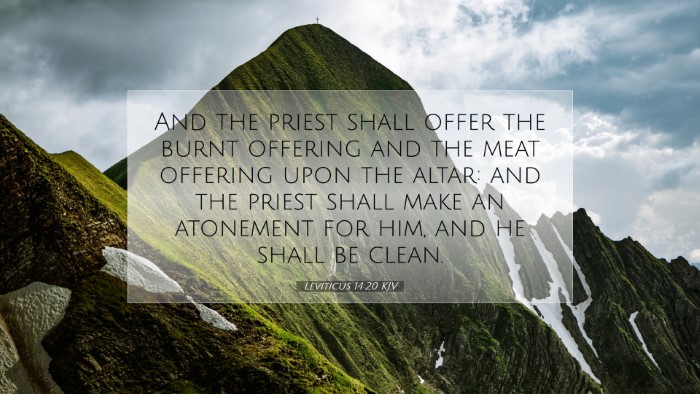Commentary on Leviticus 14:20
Leviticus 14:20 states:
"And the priest shall offer the burnt offering and the grain offering on the altar. So the priest shall make atonement for him, and he shall be clean."
Understanding the Context
This verse is situated within the broader narrative of the laws regarding leprosy and purification rituals, a critical theme in the Pentateuch relating to cleanliness and atonement. The preceding chapters discuss the serious nature of sin and its physical manifestations, particularly through skin diseases that were seen as indicators of a person's spiritual and ritual state.
The Role of the Priest
From the commentary of Matthew Henry, we glean significant insights into the priest's role in this ritual:
- The priest acts as a mediator between God and the individual, establishing a framework for restoration.
- This role underscores the importance of authoritative spiritual leadership in the process of atonement.
Henry emphasizes that the priest's offering is not merely a ceremonial act but is imbued with the significance of addressing both physical and spiritual cleanliness.
The Burnt Offering and Grain Offering
Albert Barnes elaborates on the specifics of the offerings mentioned:
- Burnt Offering: Represents complete dedication to God, symbolizing total surrender and commitment. It reveals the necessity of total consecration in the journey towards being cleansed from sin.
- Grain Offering: Acknowledges God’s provision and expresses thanksgiving, signifying the importance of gratitude alongside sacrifice in the process of atonement.
Barnes posits that these offerings complement each other, portraying a holistic view of both repentance and thankfulness as essential components of worship.
Atonement and Cleansing
The act of atonement is central to this verse. According to Adam Clarke, atonement signifies a reconciliation with God, restoring the individual's status within the community of faith:
- Clarke notes that this process is not just about physical healing but also spiritual renewal.
- He highlights that the term "clean" implies a return to wholeness, where the individual can reintegrate into society.
Broader Theological Implications
This ritual points towards the greater theme of sin and redemption found throughout Scripture. The necessity of a priest to make atonement reflects theological principles that continue into the New Testament.
- In Christ, the ultimate High Priest, we find the fulfillment of the sacrificial system.
- The transition from the Old Testament rituals to Christ’s once-for-all sacrifice offers profound insights into the nature of forgiveness and grace.
Practical Applications for Today
The insights from this verse translate to modern application in several ways:
- It calls for an understanding of the role of spiritual leaders in guiding communities towards grace and restoration.
- The significance of both personal and communal acts of worship is highlighted, urging believers to recognize the importance of offerings—both literal and metaphorical—in their spiritual lives.
- Ultimately, it invites reflection on the continuous need for atonement and the good news of being made clean through Christ's sacrifice.
Conclusion
Leviticus 14:20 encapsulates profound theological truths about cleansing, atonement, and the necessary rituals that reflect God's desire for His people to be in right standing with Him. The combined insights from Matthew Henry, Albert Barnes, and Adam Clarke offer a rich tapestry of understanding that serves to edify pastors, students, theologians, and scholars alike.


